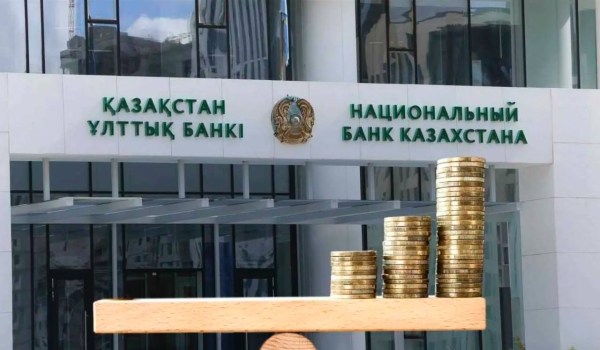The Monetary Policy Committee of the National Bank of Kazakhstan has decided to keep the base rate unchanged at 14.25% per annum with a corridor of +/- 1 percentage point.
In August and September, annual inflation in Kazakhstan saw a slow decline to 8.3%, following a rise in July. However, monthly inflation remains elevated, recorded at 0.4% in September, surpassing historical averages. The National Bank noted that the persistent part of inflation is decreasing, but not at a pace deemed sufficient. Additionally, inflation expectations among the population increased in September, signaling ongoing concerns about price stability.

External risks to Kazakhstan’s inflation outlook include rising food prices in global markets and heightened inflation in Russia, where the central bank recently raised its key rate to 19%. Within Kazakhstan, pro-inflationary pressures continue due to fiscal stimulus measures, stable domestic demand, tariff increases, and elevated inflation expectations.
To achieve the medium-term inflation target of 5%, the National Bank emphasized the need to maintain moderately tight monetary conditions. It acknowledged that the balance of risks leans toward inflation, necessitating a careful approach to future adjustments in the base rate. A consistent reduction in the sustainable part of inflation, along with effective solutions for financing the fiscal gap, is crucial for a balanced rate reduction.
The latest data indicates positive growth in Kazakhstan’s economy, with a 4.4% y/y increase in the short-term economic indicator for January-August 2024. Significant growth was observed in the construction, transport, and communications sectors. Domestic demand remains robust, bolstered by rising retail trade and ongoing fiscal support, leading to a sustained positive business activity indicator for eight consecutive months.
As global inflation gradually moderates, driven by stringent central bank policies, food prices continue to rise on the international stage. The FAO price index recorded increases in September due to higher costs across various commodities, particularly cereals, amid concerns over adverse weather conditions affecting supply.
The bank had previously reduced the base rate by 0.25 pp.
The National Bank’s next scheduled meeting to decide on the base rate will take place on November 29, 2024.




